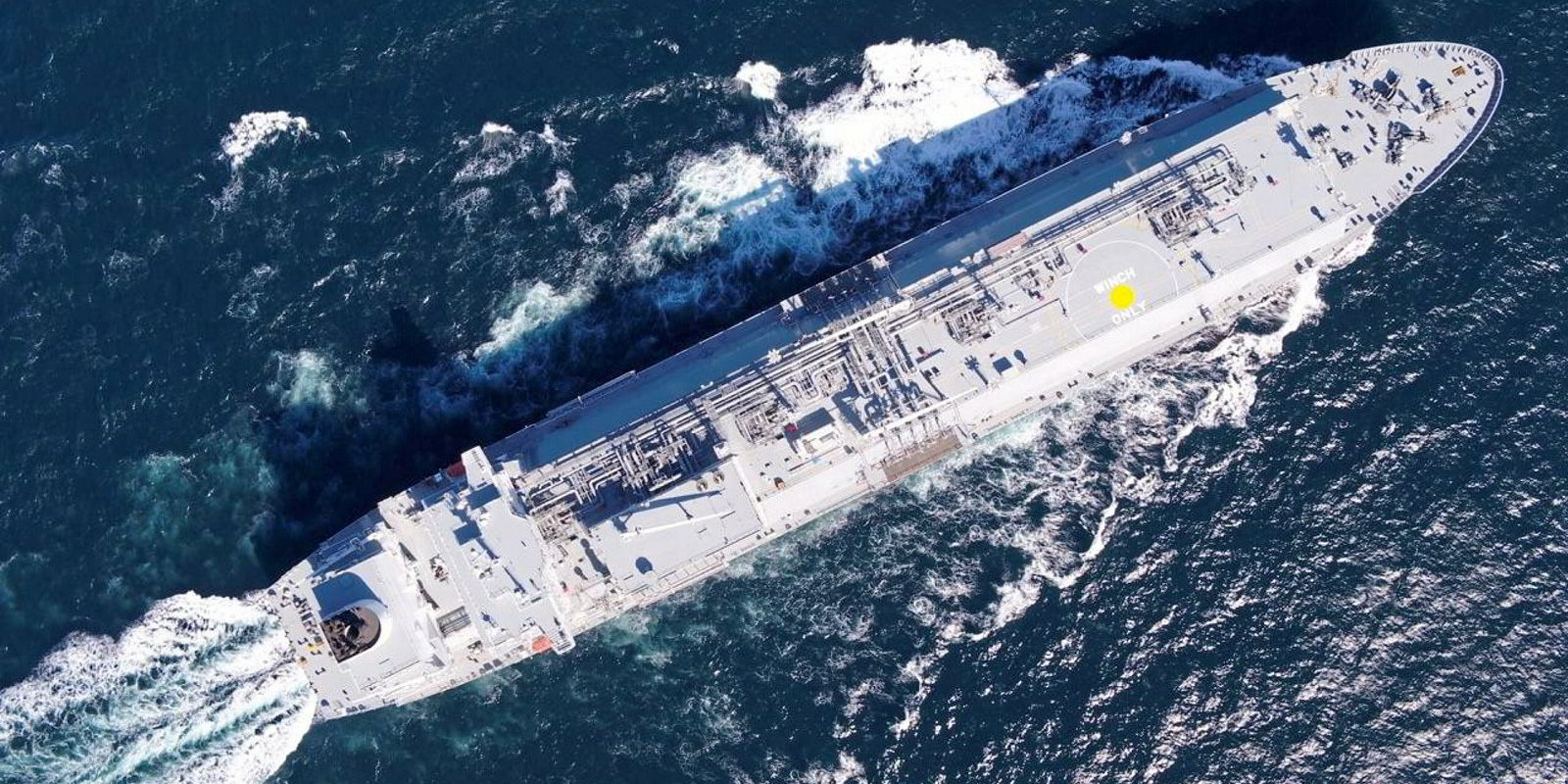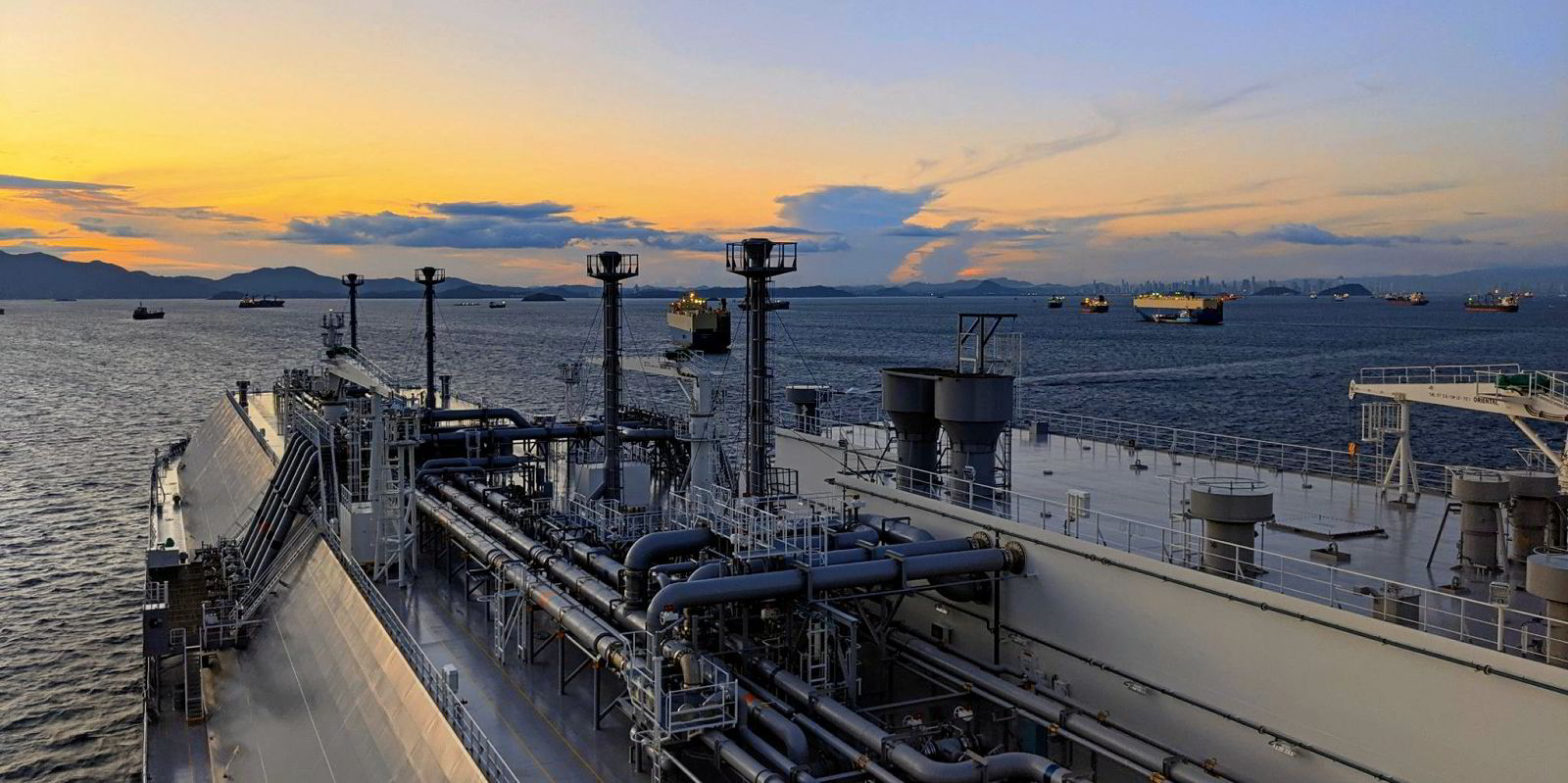LNG carrier charter rates and market confidence have been boosted in a week in which gas prices grabbed the headlines worldwide.
Brokers said rates for modern two-stroke, gas-injection vessels have moved well into six-figure territory, with a number of fixtures now concluded at around $110,000 per day.
One LNG broker expects the next fixtures to be done at daily rates of $150,000-plus.
Fearnley LNG has pushed up its assessment for ME-GI and X-DF LNG carriers to $150,000 per day in both east and west trading basins.
But tri-fuel ships are also earning top dollar. Brokers said trader Trafigura relet its 165,500-cbm Methane Spirit (built 2008) to Unipec at about $90,000 per day.
Spain's Naturgy was seen fixing the 161,870-cbm Pavilion Vanda (built 2015) at $110,000 for a spot voyage.
Sentiment surge
Rate assessments have been jacked up across all routes and brokers spoke about a "huge sentiment drive" for LNG carriers.
The Baltic Exchange pushed up its levels for a tri-fuel diesel-electric vessel on an Australia to Japan voyage to $93,830 per day, a jump of $24,294 or 35% this week.
BLNG3g — the Baltic's US Gulf to Japan index — rose more than $23,000 to $100,578 per day.
Steam turbine vessels are following in the wake of their younger cousins.
Sinokor Merchant Marine is reported to have fixed out two of its trading steamships for six-month periods at daily rates of about $60,000 and $90,000.
The rate jumps across all types of LNG tonnage come in a dramatic week for gas prices worldwide that saw records broken.
Asian spot LNG prices, measured by S&P Global Platts' Japan-Korea-Marker benchmark, hit a massive $56 per MMBtu on Wednesday before slumping back down to strong numbers in the $30-per-MMBtu range.
The market was alive with talk of China hoovering up LNG cargoes ahead of the winter. But this has coincided with Europe's moves to restock its inventories, which were already at abnormally low levels.
Brokers said the very high LNG price makes the cost of shipping almost inconsequential in a portfolio player-dominated market in which most available vessels are relets taken on period hire earlier in the year as winter cover.
But one broker explained that the hot gas prices in Asia and Europe mean the arbitrage between the east and west basins remains closed, meaning vessels are largely trading intra-basin, which is reducing tonne-miles.
He added, however, that the market remains "extremely volatile" and "Things are moving very quickly."






